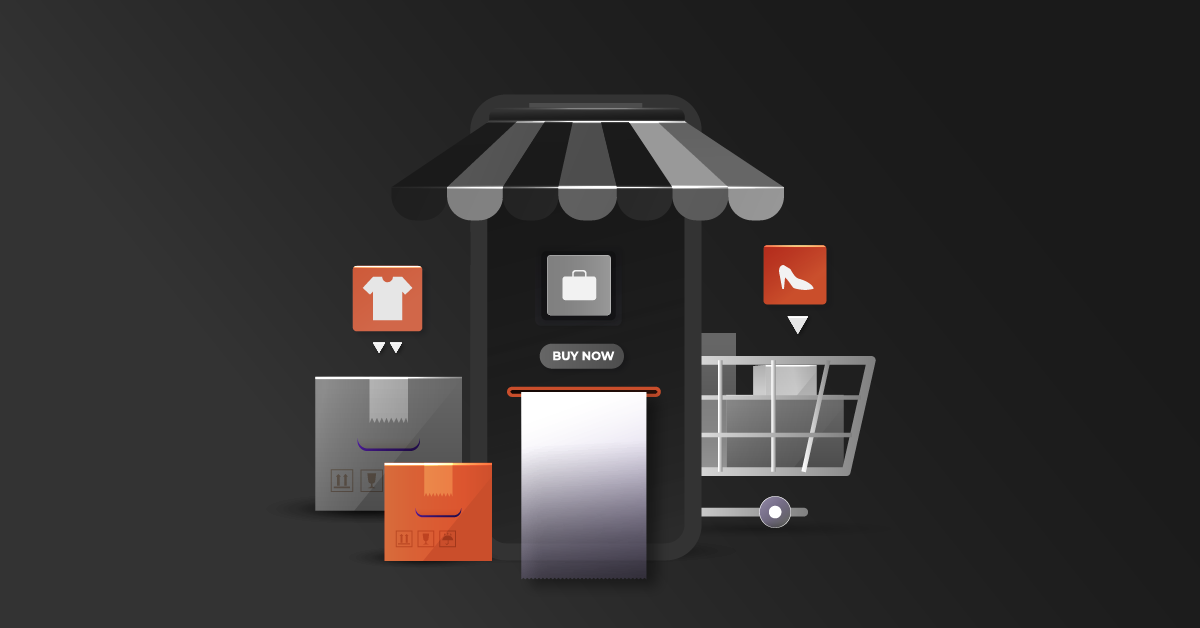The digital frontier has changed. What worked in eCommerce 10 years ago, or even 5 years ago, has changed and evolved, and may not always work today.
The competitive advantage has been dramatically decreased.
Today, the eCommerce landscape is dominated by large brands like Amazon, Target, Walmart, Best Buy, and others — which makes it hard for smaller brands to maintain a competitive edge.
Then, there’s globalization and selling on a global scale. United States merchants are now competing with Chinese merchants. The reality of staying competitive against these massive brands and other merchants around the world can be frustrating, to say the least.
Going one step further, larger, more established merchants are being persuaded to sell on platforms like Amazon, eBay, and other platforms as third-party sellers, which helps solidify both their place and the platform’s place in the market.
In other words, competing in the eCommerce industry isn’t going to get any easier, any time soon.
If you are thinking about starting an eCommerce business from scratch, you have your work cut out for you. It’s said that more than 90% of eCommerce businesses will fail within the first year, with another 60% of the businesses that are left standing failing within 3 years.
Those numbers are staggering, but you don’t have to necessarily accept them as truth. There are ways to bypass this huge learning curve, and completely shortcut your way through the part of the process that causes so many entrepreneurs to fail.
Buying an established eCommerce business is a great way to buy yourself into the competitive industry, and start off on the right track. If the business has already proven itself, and carved out a small piece in their market, you can capitalize on this success to give yourself true financial and time freedom.
Before you rush out and start trying to find an eCommerce business to buy, though, you’re going to want to think about a few key factors that can help influence your decision and make sure you are able to continue growing the business after you’ve bought it.
Contents
#1 – Maintain Your Competitive Advantage
When you’re thinking about buying a business, it’s always best to start in an industry or market that you are familiar with, and have at least a little bit of interest in. Even better if you’re actually passionate about the industry.
Sticking with your knowledge is a great way to give you unique insights into the marketplace, and stay ahead of your competition. If you’re not passionate about the products that you’re selling or the market that you’re serving, you could quickly become discouraged.
You also need to make sure you are giving yourself a jump start by not only having product knowledge but also having an intimate knowledge of the industry.
If you have key relationships that have already been established inside of the industry, you are positioning yourself to capitalize on the business in ways that the previous owner hasn’t.
Understanding why each product sells the way it does, problems that your market is having, and how you can bring new products to the market that will solve those problems will give you plenty of growth opportunities after you have acquired the business.
#2 – Stick With Simple
One of the biggest mistakes new eCommerce store owners make is attempting to sell too many products and create a massive catalog right out of the gate. You don’t want to hold onto excess inventory if you don’t have to, especially in the beginning stages.
If you’re buying an established business, this isn’t so much of a problem. The previous owner should have already optimized the inventory for you and you should have information about which products are already selling.
It’s far better for you to work on building relationships with your buyers, understanding what makes them tick, and which products they want to see, and then focus on cultivating the same relationships with your vendors and service providers.
Over time, you will gain the experience needed to understand the ebbs and flows in your market, and you won’t be making critical mistakes by holding onto inventory that won’t sell.
#3 – Understand The Sourcing Process
In your eCommerce business, there’s nothing as critical as sourcing and understanding the sourcing process.
You need to ensure that your prices are competitive, and that starts from the very beginning, in the relationships that you have with your suppliers and service providers.
You’ll need to know what to buy, when to buy it, and what quantities you’ll need to buy to make sure you are getting the best breaks. You can get an idea of what your products need to be priced at by taking a look at your competition.
You can also take a look at other marketplaces like eBay and Amazon. People that are selling on eBay and Amazon understand pricing, and how to remain competitive in ultra-competitive environments.
When you are thinking about pricing, take a look at each of the different SKUs that you want to sell on eBay and Amazon. If you don’t believe you can remain competitive, you will need to come up with another advantage. This could be your branding or positioning.
The most successful eCommerce store owners are working on developing their sourcing channels early and often. The most established players have long-term relationships with their suppliers, which gives them significant pricing breaks.
Another area you can focus on when you’re trying to be smart about your sourcing is on the shipping. You’ll be competing against large merchants that offer free same-day shipping.
The margins you’re able to make are largely determined by how cheaply you can source the products, and if you get the products for low enough costs you can easily offer free shipping to your customers.
If you overpaid for the products, it’s going to be hard to compete on both sales pricing and shipping costs. On the other hand, if you buy an in-demand product for a low price, you’re setting yourself up for success.
#4 – Know Your Competitors
This is simple business practice. If you’re going to compete, you need to know exactly who you are competing against.
Most people tend to think that they’re competing against eBay and Amazon, when this just isn’t true. You may be competing with sellers on those platforms, but you’re never competing with eBay and Amazon, unless you’ve purchased a multi-billion dollar eCommerce business.
Dig into your market to understand the tricks and tactics your competition is using to stay relevant, and dissect where each of those competitors are showing signs of weakness.
In general, you want to make sure you are looking at stores that are currently on the same scale as you, and then those stores that are at the next level you’re aiming to hit.
If you notice a competitor is doing something well, take note of it — especially if their prices are significantly lower than yours. Attempt to dig in and figure out where they are sourcing their products from.
#5 – Stay Visible
Marketing can be a tedious, difficult process for a new eCommerce store owner.
Even knowing that it can be difficult, you absolutely cannot afford to ignore it or let your competitors market their businesses better than you market your own.
You’ll want to make sure you are always tapping into your creative side to keep your business in front of your target consumers.
You can’t just think about how you are driving traffic to your business, either. Good marketing includes your product titles, descriptions, your navigation structure, customer service, and other factors.
You will want to make sure that the traffic coming into your business is completely diversified.
SEO marketing strategies are excellent for every business, but some eCommerce businesses are dominating right now by tapping into paid advertising networks like Facebook’s advertising program, and through organic social media marketing on Instagram.
If you don’t understand marketing, you will need to brush up on your skills to make sure that you can stay competitive. It’s worth spending time figuring out what is working for the competition, and then trying to improve on what they’ve already done.
Even though the digital arena is constantly changing and evolving, the same proven business practices that worked 10 years ago will still work today.
All you have to do is pay attention to them, understand them, and make sure that you follow them after you’ve bought the eCommerce store, and you can capitalize on the success that the previous owner built up for you.




